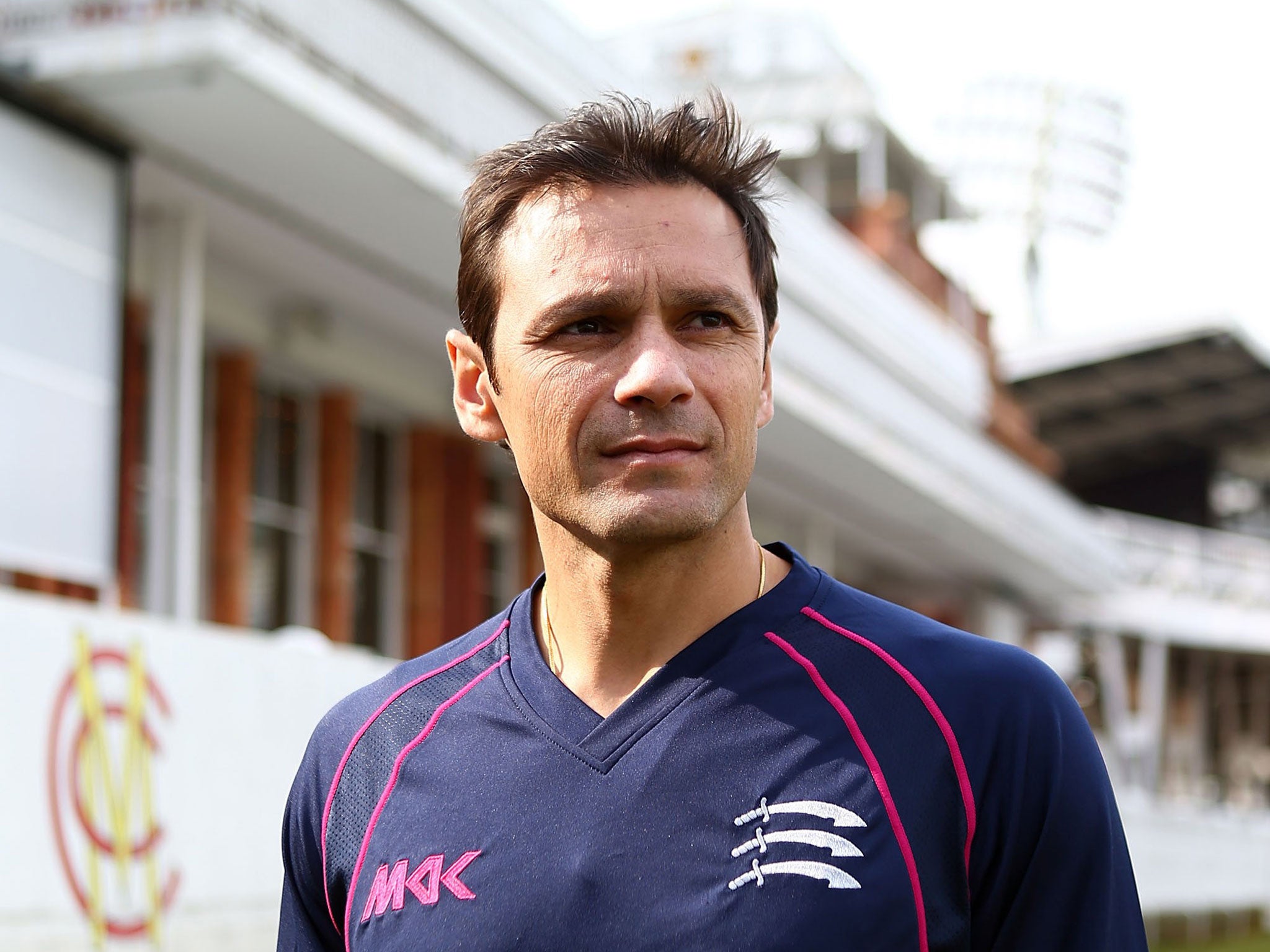The Ashes: Australia should have hung on to their senior pros, says Mark Ramprakash
Former batsman says England would have found it tougher against Hussey and Katich

When England take the field at The Oval for the final Test, it will almost feel like a party atmosphere. It is not a sensation with which Mark Ramprakash is familiar, even if he is a great dancer. His Ashes career began and ended at The Oval but coincided with more than a decade of Aussie domination.
His first taste of the great rivalry came 20 years ago this week, just as Shane Warne emerged on to the world stage, and his final Ashes Test was Steve Waugh's last Test in England. For a batsman as gifted as Ramprakash his timing was not good.
He is shocked by how the Australians have gone into decline since then. "I am very surprised," he says. "They seemed to have such strength in depth in the Nineties and early 2000s. They could have put out three Test batting line-ups, they were incredibly strong and seemed to have a production line of batsmen."
Ramprakash blames their latest Ashes defeat on the selectors. "They have got rid of their core senior players too early. I've always believed that in any sport if your core players are good role models they deserve to play. The likes of Mike Hussey and Simon Katich, who are very professional players, very impressive run-scorers, have not been selected. If they were in the team, England would have had it tougher.
"If you've got young players who look like outstanding prospects then by all means throw them in," he adds. "But there have been a lot of question marks about the young players Australia have picked. None of them has really gone on to establish themselves, like Phil Hughes, Usman Khawaja; even Shane Watson has not nailed down the opener's spot."
While Australia have gone downhill, England improved dramatically in the last decade and did it in their own way. "The great Australian sides used to bully teams, dominate, score at four an over and set very attacking fields," says Ramprakash. "But England are different, they have come across a formula that works for them and they are playing to their strengths.
"Alastair Cook and Jonathan Trott have been prolific at scoring big runs, which allows the middle order to enjoy themselves. They have an established nucleus that is very experienced and they know what it takes at Test level. They can handle the pressures. They are establishing their own era."
Ramprakash hung up his boots last summer after being dropped by Surrey and now coaches back at his former county, Middlesex, and with the England Lions, preparing the next generation of Ashes winners.
One of the hallmarks of England's decade at the top has been consistency of selection, something which was lacking in his day – he was dropped more than 10 times, as was Graeme Hick, who made his Test debut in the same match and, like Ramprakash, scored 100 first-class centuries despite never hitting the heights at Test level.
"There's no doubt that players respond to that consistency," he says. "A lot of debutants have come in and done well. The environment has been welcoming and relaxed for the new players because they feel they are going to get a run in the side.
"The Lions has been a tremendous breeding ground, an educational place, and when the players get selected for the main squad they enjoy themselves."
Ramprakash's Ashes appearances were sporadic but when he did play, his record was impressive; he averaged 42 compared to his overall figure of 27.32. "It's interesting," he says. "I kept coming in for the odd game and I was performing well. The Australians used to have some great bowlers, Warne and Glenn McGrath and, earlier on, the likes of Craig McDermott and Merv Hughes, and they were backed up by some fairly noisy fielders giving you a word or two about how your career's going. From a personal point of view it was a big challenge."
For fairly noisy, read sledging. Like Hick, Ramprakash looked like an easy target to the nearest ranting larrikin. How did he cope so well with what Steve Waugh liked to call "mental disintegration" in the pressurised environment of the Ashes? "It's funny how it works out. For a lot of innings early on in my career I was too tense and nervous. But the challenge seemed to bring out the best in me.
"It's like Tiger Woods, everyone expects him to walk around the course smiling and laughing but that's not his way, he plays with intensity. That's what works for him, that's what has made him so good."
In his first Ashes Test in 1993, he was called up less than an hour before play began at The Oval after Graham Thorpe broke a finger in the nets. He made 64 as England won by 161 runs, their first victory over Australia for six years. In his last Ashes Test, at the same ground in 2001, he scored 133 but by the following summer he had been dropped for the final time.
If he had been given more of an opportunity, he might have danced a victory jig at The Oval too.
You can see Mark in action at The Sick Children's Trust Cricket in the City event at the Honorary Artillery Company on Thursday 12 September. Tickets are available at: www.sickchildrenstrust.org
Join our commenting forum
Join thought-provoking conversations, follow other Independent readers and see their replies
Comments
Bookmark popover
Removed from bookmarks